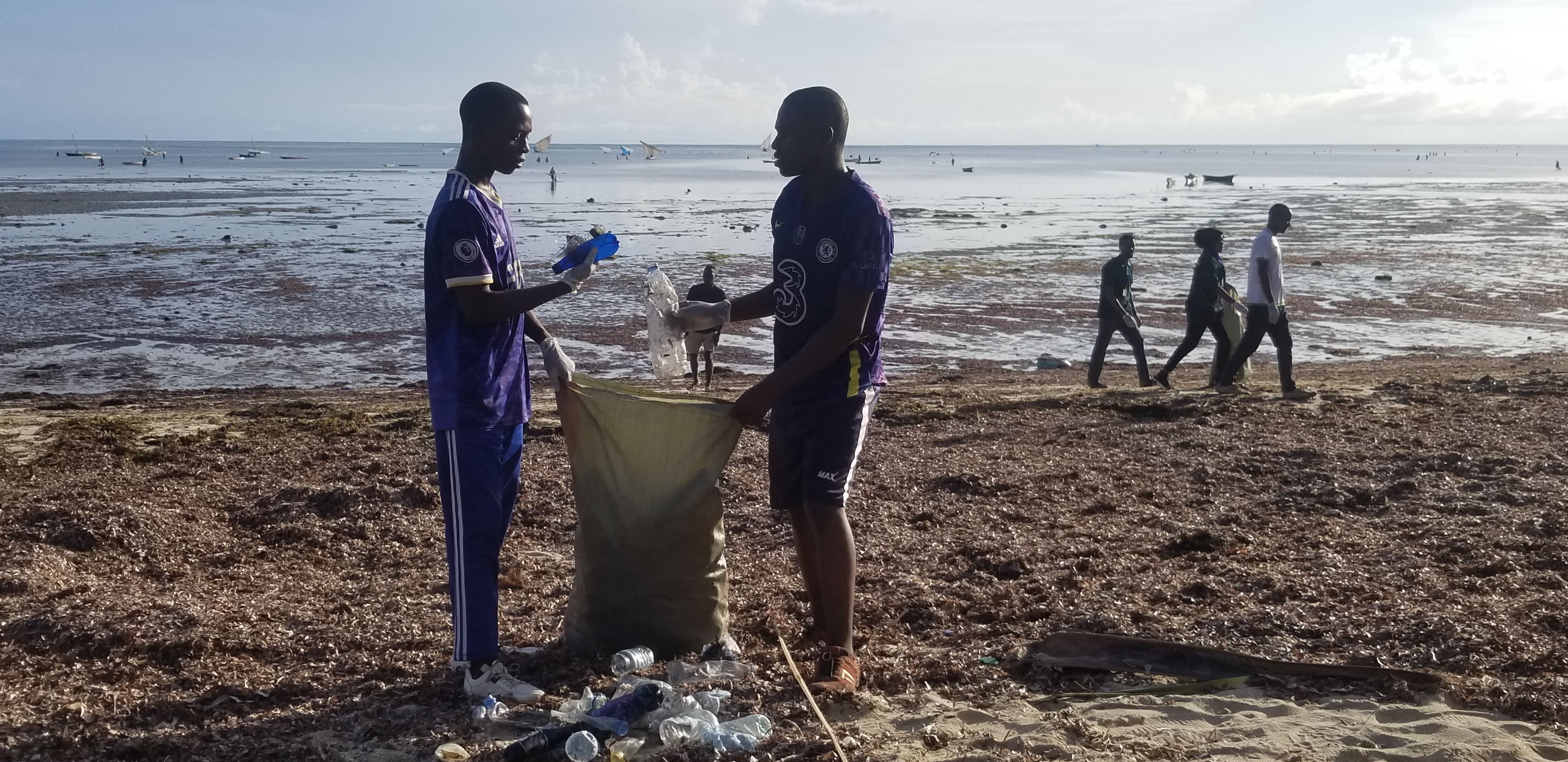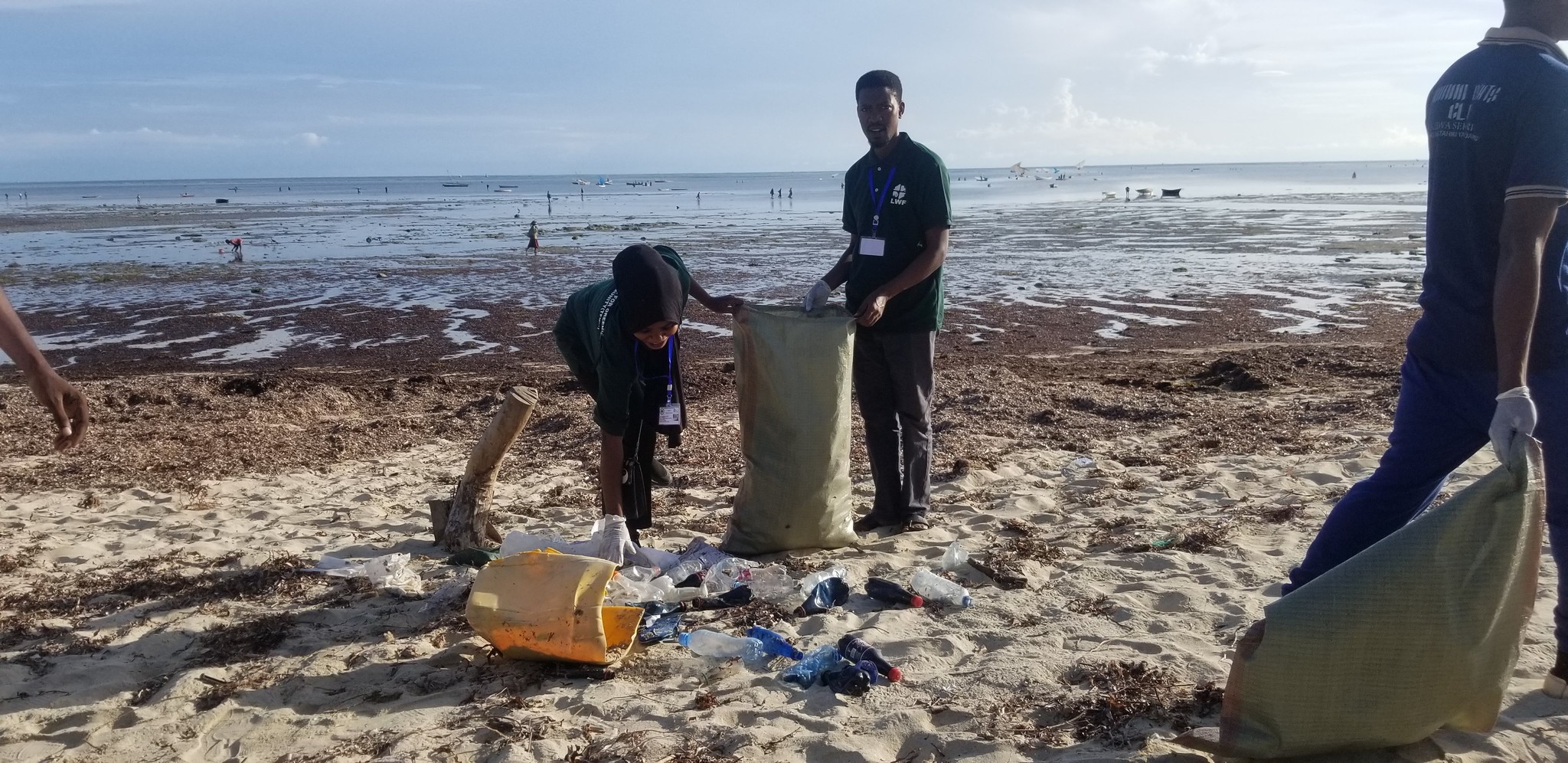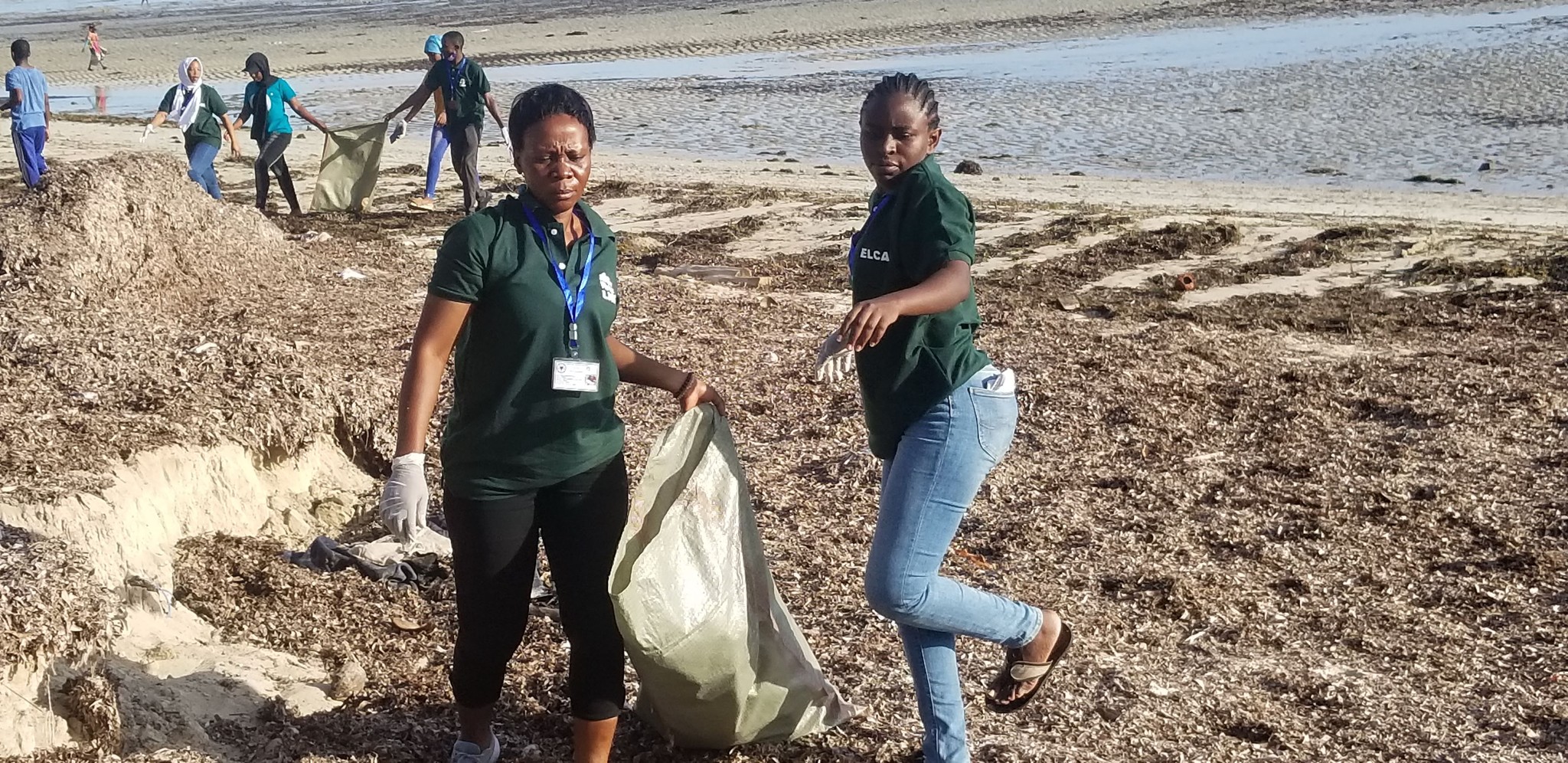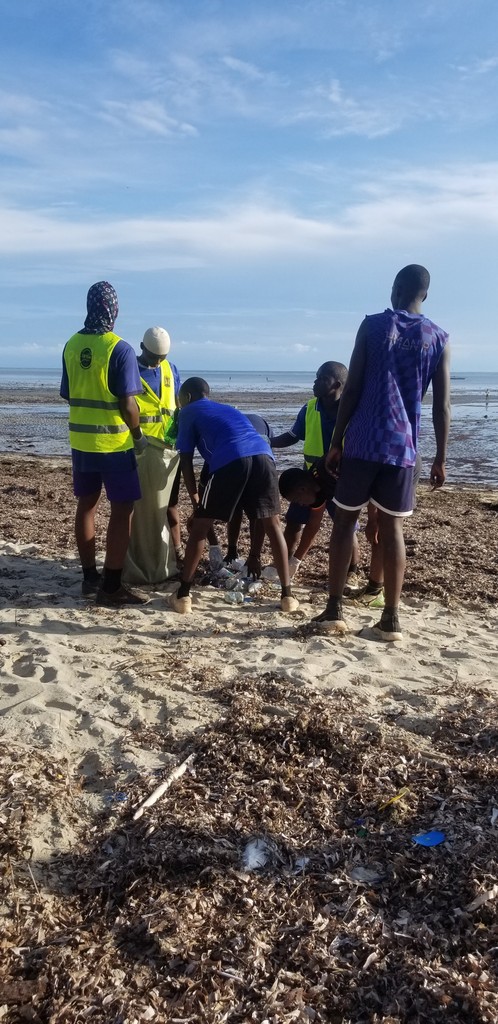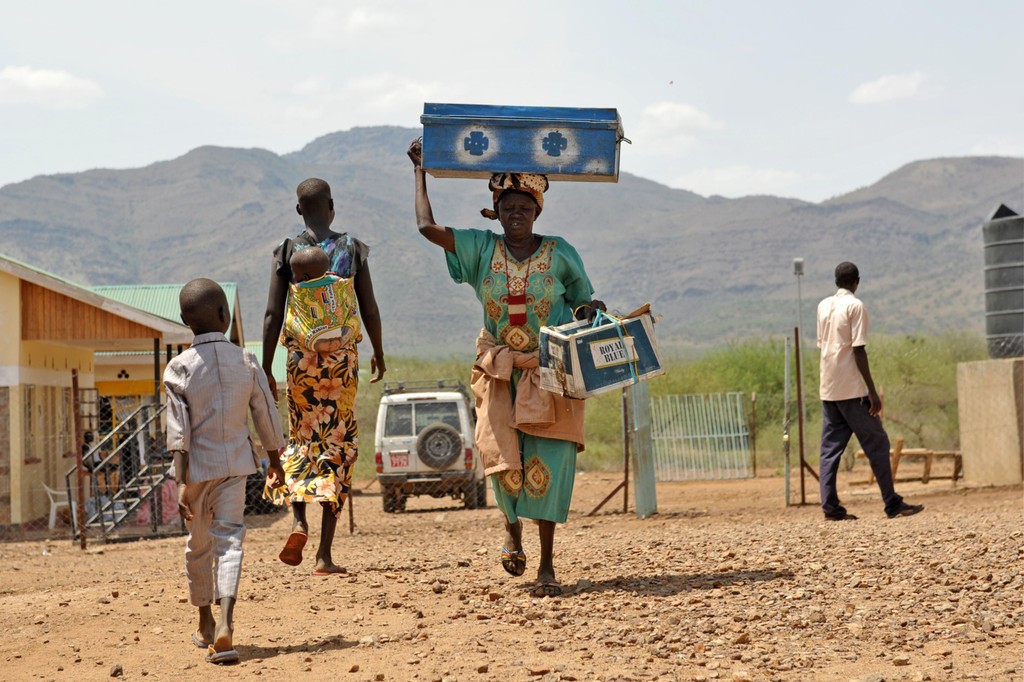Compilation of Climate Justice Advocacy
Good Practices of Local to Global Action

Overview
PROJECT DURATION
July 2022 to October 2022
BUDGET AND FUNDING
EUR 2,000, The Lutheran World Federation
SNAPSHOT
The Together for Greenish Community initiative is designed to address adaptation, mitigation, and climate justice advocacy. Tanzania is experiencing increases in temperature, rising wind speeds, and a concerning decline in rainfall over time as a direct result of climate change. To tackle the negative impacts of climate change, the project focused on environmental conservation education and ownership within community initiatives to mitigate aggravating effects, such as deforestation and waste pollution.
IMPLEMENTATION
The Lutheran World Federation and youth from the Evangelical Lutheran Church in Tanzania
Context
Water availability is problematic in Tanzania, owing to its mostly arid and semi-arid landscape in combination with seasonal rainfall patterns. Climate change exacerbates temperature extremes, longer dry spells, and heavy rainfall, which further impact the functionality of water sources, resulting in either flooding or extreme droughts.
In addition to these hardship areas, Tanzania has one of the fastest rates of deforestation in the world, driven largely by demographic change and the resulting demand for agricultural land and domestic cooking fuel. Deforested land is at higher risk of damage from floods and droughts, less able to absorb water, and more prone to erosion.
Furthermore, Tanzania has increasingly seen microplastic debris in both marine and freshwater systems over the past decade. The risks and impacts are progressively worsening due to human pressures and increased urbanization, coupled with general inadequate awareness.
In this context, the project positions itself to support local communities in awareness raising, skills, and opportunities toward mitigating the impacts of water scarcity, deforestation, and waste pollution through its initiatives and principles.
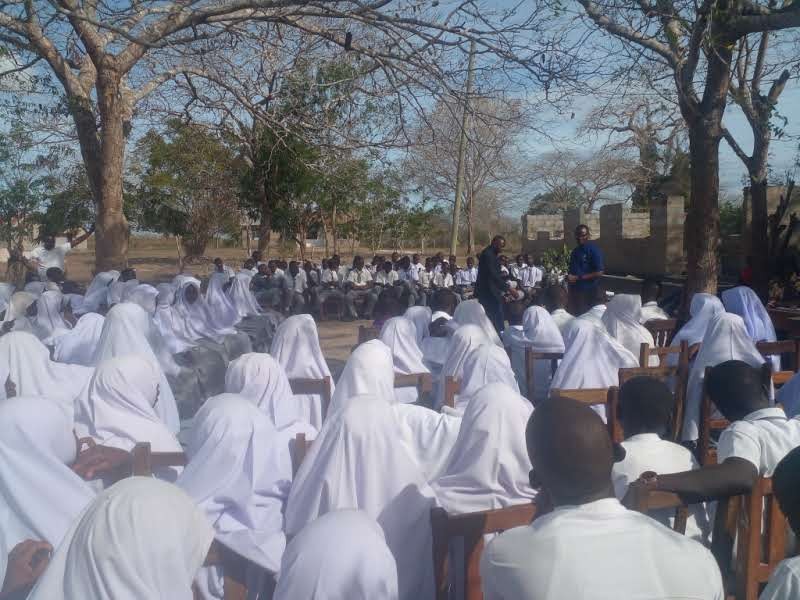
Strategies
Community education, sensitization and capacity strengthening for adaptation and resilience
The project focused on empowering those most vulnerable to the effects of climate change, mainly youth and women, with an emphasis on advocacy and adaptation.
The project achieved over 80% youth engagement within its activities and supported seven youth groups, including four out-of-school groups and three in-school groups. Furthermore, five women empowerment groups were formed and addressed the vulnerabilities they faced due to climate impacts, providing education and support for building independence and resilience.
The project also aimed to enhance environmental conservation through education and practical engagement. Behavioral changes were instigated with the addition of waste management equipment in schools, coupled with student workshop engagements that highlighted the importance of meeting the 1.5°C target from the Paris Agreement.
Furthermore, the project included local communities in beach cleanups to further engage its members in working toward environmental conservation goals.
Biodiversity conservation and restoration of ecosystems
The project placed significant emphasis on mitigating the effects of deforestation, through tree-planting workshops and events. As a result, 5,000 trees have been planted. School events led to the planting of 1,800 trees, the Kilwa Women Forum group grew 500, and the remaining were planted through various communities.
This hands-on approach not only contributed to mitigating the impacts of deforestation and climate change, but also empowered individuals to take responsibility for actions within their sphere of influence.
Community sensitization and advocacy
Guided by a strong spirit of volunteering and ownership, the project coordinated events and advocacy tools with local government, stakeholders, and communities. To raise climate awareness, the project leveraged media platforms, including local radio and television through Mashujaa TV, reaching an estimated 13,230 people.
This initiative emphasized the universal importance of the environment and increased local familiarity with climate change and its impacts. Furthermore, the project supported national awareness days in collaboration with other organizations.
Local to Global to Local Approach
On the global stage, the project was presented in events like the Vice President Environmental Day, a significant environmental commemoration, which falls under the Ministry of Environment.
During the commemoration, the project collaborated with education and environmental departments, as well as Tanganyika Christian Refugee Service, to raise awareness about environmental conservation and promote tree planting and personal hygiene at Miteja Secondary School in Kilwa District.
After global engagements, the project circled back to the local community, involving members within the event and ensuring that the knowledge and experiences gained from international engagements were effectively communicated and implemented.
This approach strengthened local ownership and sustainability of the project’s efforts, fostering a deeper connection between global policies and local action. Further collaboration occurred with representatives from government bodies, such as the National Environmental Management Committee, and the District Environmental Officer, and the District Education Officer, who are responsible for climate change policy attended the organized events.
"The Together for Greenish Community project in Tanzania adopted a local to global to local approach to address environmental challenges. It began by engaging local community leaders and extended to involve country leaders at the national level. The project’s significance was acknowledged when its representative was invited to speak about this initiative in Parliament, highlighting its impact on environmental policies and approaches.” (Erick Kapira, Project Director)

Target Group
The project indirectly impacted around 1,780 students through tree planting and educational awareness activities in schools, including Miteja, Mbuyuni, Ngome, Kilwa, and Nanjirinji Secondary Schools.
Among these students, around 150 actively participated in seven dedicated youth groups, advocating for climate action, and promoting environmental awareness within their communities.
About 125 women formed five women empowerment groups that actively fostered gender-inclusive climate action initiatives and promoted women’s active participation in environmental conservation efforts.
Moreover, approximately 350 households were engaged in the project’s tree-planting efforts, beach cleanups, and climate change education activities, contributing to environmental conservation and climate resilience within their immediate surroundings.

Impact
1.
Through community engagement and awareness initiatives, the project removed barriers in traditional beliefs that hindered tree planting.
2.
The project brought about coordinated interactions between government leaders and local communities, leading to a shared responsibility approach from both in addressing climate challenges. These resulted in the increased distribution of public dustbins and government-led tree nurseries.
3.
The project served as a catalyst, inspiring local communities and schools to enhance their environment through beach cleanups, greener practices, and tree planting.
4.
Members of the women empowerment groups, along with their families and communities, have benefited from climate awareness education, focusing on how to operate businesses without polluting the environment. Several groups have received formal recognition from the government, which is necessary for them to receive additional support from outside this project initiative.
5.
The project inspired youth and inspired interfaith dialogue benefiting both Muslims and Christians, empowering them to take part in climate action and environmental awareness efforts.
6.
The impact of the project was recognized at the highest level, as its representative was invited to present its initiatives in Parliament, providing a platform to advocate for increased support and to address climate change challenges at a national level. These centered around reducing carbon emissions resulting from charcoal burning through subsidized alternative sources, reduction in the use of plastic bags, increased producer accountability, and finally, a more focused approach to educational awareness in schools, adopting tree planting campaigns.
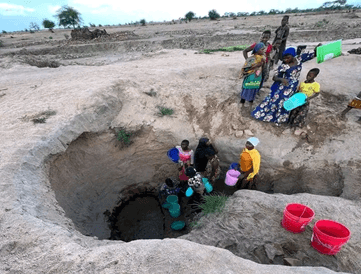
Replicability
Throughout the project implementation, several valuable learning experiences offered a blueprint for replication in future initiatives. This project effectively inspired, and engaged communities, formed action groups, and overcame substantial financial barriers in the pursuit of climate awareness and action.
The key to this success lay in fostering a sense of ownership and responsibility within the communities, empowering them to take climate action.
The project worked closely with the most vulnerable members of society, including women and youth, and succeeded in empowering those whose voices were often overlooked but who are most affected by climate change impacts. Whether indirectly influencing households or directly shaping the minds and the passion of future generations, the project’s widespread approach tackled the multifaceted country challenges.
One of the most influential tools employed by the project was community engagement. Through hosting and supporting captivating events with inspiring country leaders, the initiative made participation in the wave of change more accessible and rewarding for all involved. As a result, people were encouraged to become active contributors to the cause.
The initial project involved planting and cleanup activities, relying on engaging with volunteers to support the project’s vision. However, the team’s success rested heavily on their adaptability, as they faced challenging circumstances like remote travel, limited technology, funding constraints, and low awareness among the engaged participants. This was overcome by utilizing a combination of local public transport, local technology, reliance on volunteering, and persistence with education and awareness advocacy.
Overall, the achievements of this project stand as a testament that with unwavering support and ambition, positive change can be accomplished. Initiatives like this are undoubtedly worthwhile investments in a brighter and more sustainable future.


